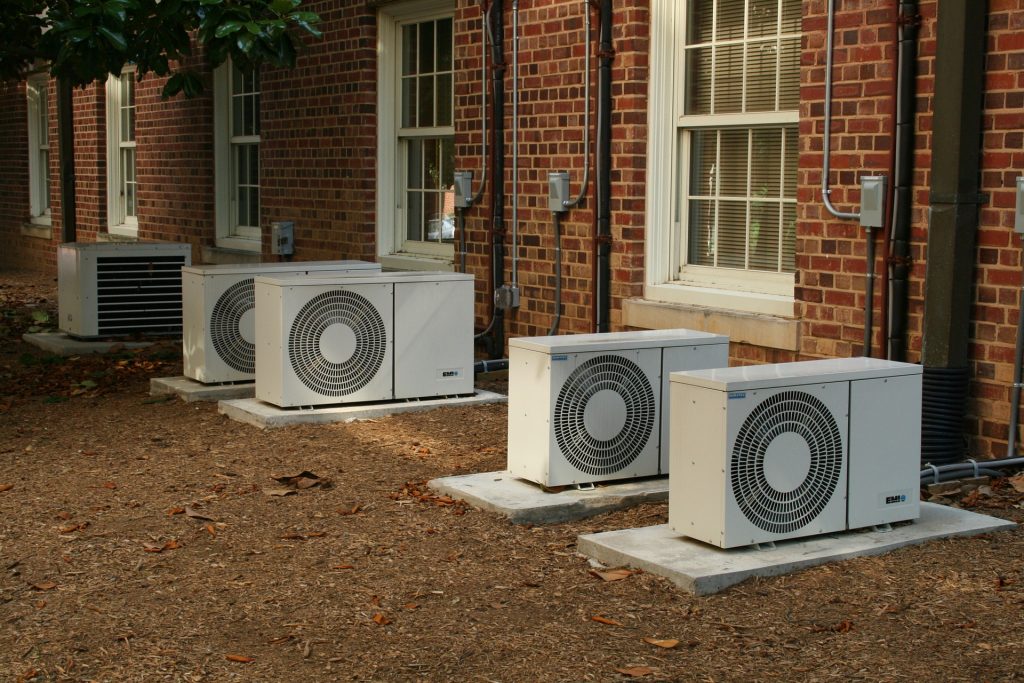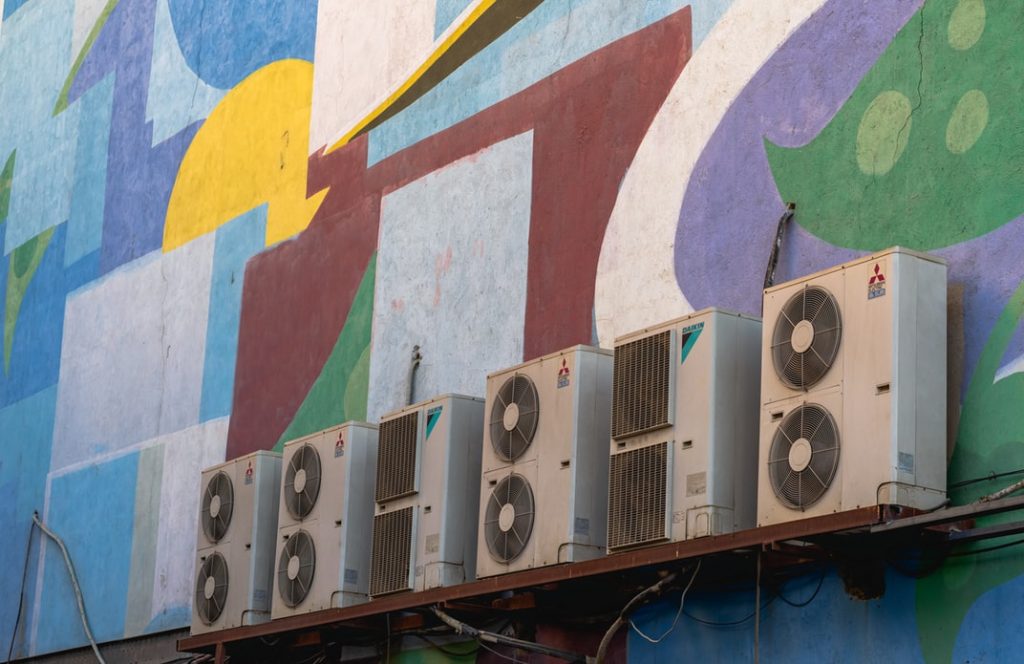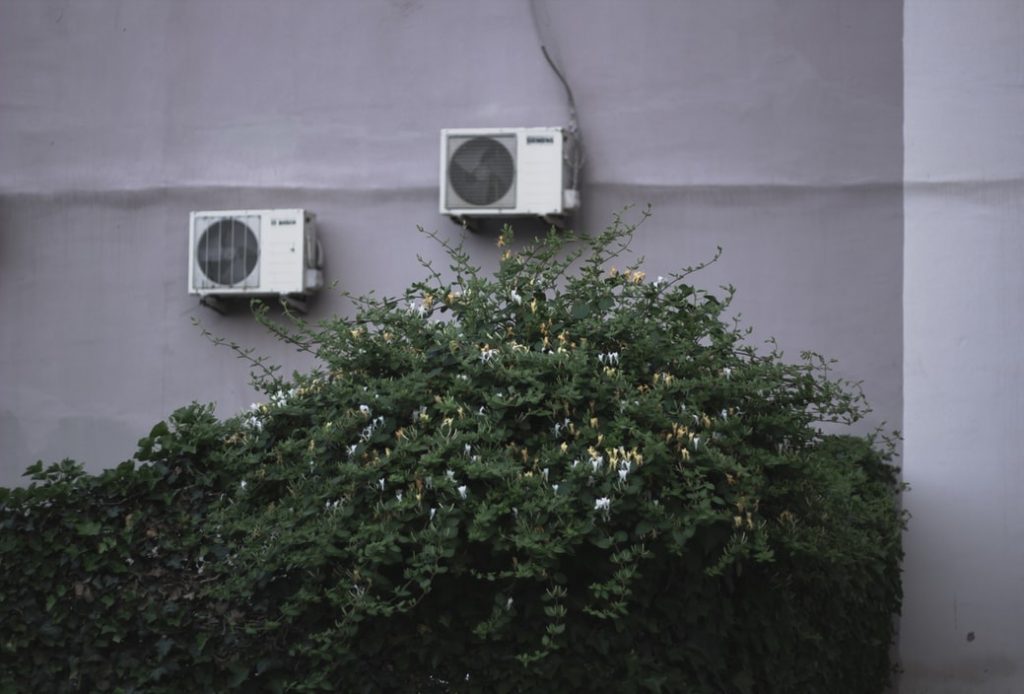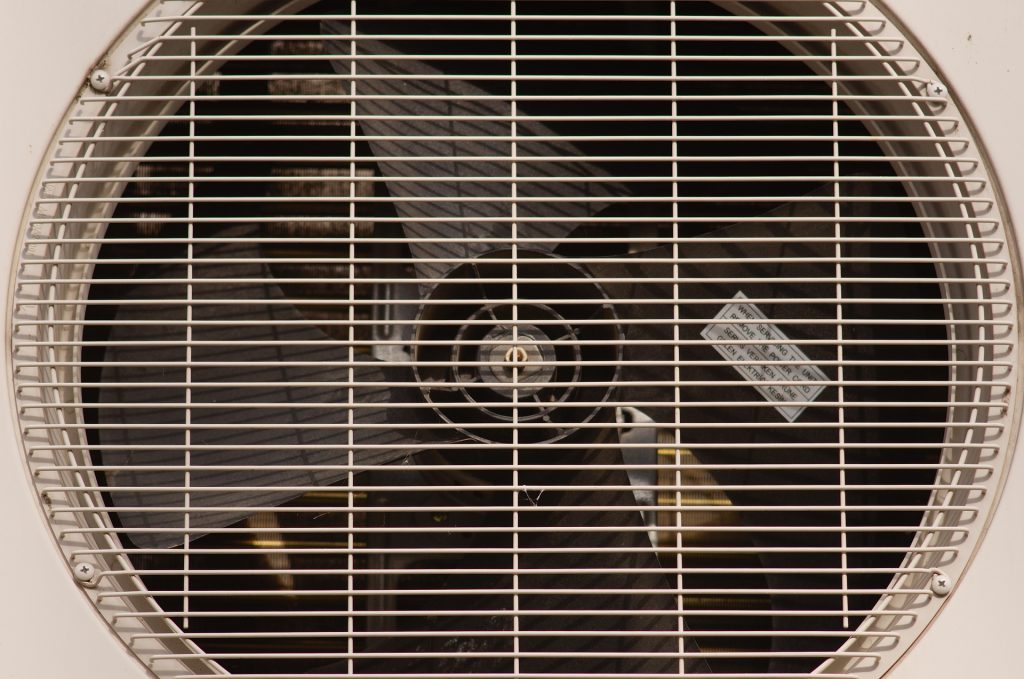There are many different types of air conditioners for homes out there. As such, choosing the right one can be difficult. In this post, we’ll walk you through the available options and give you some pointers to consider. By the end, you should have a pretty good understanding of what unit makes sense for your home.
Types Of Air Conditioners For Homes
Types Of Central Air Conditioners
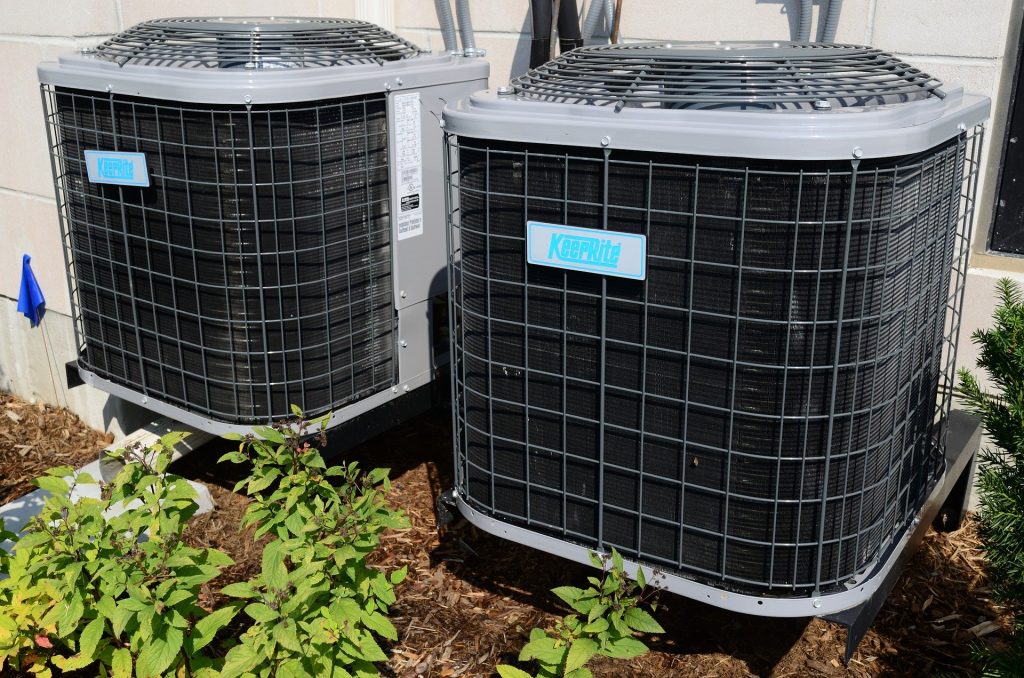
There are two types of central air conditioners: packaged and split system.
Packaged Central Air Conditioners
A packaged central air conditioner combines the compressor, condenser, and evaporator in a single outdoor unit. This unit typically sits on a concrete slab near your home’s foundation. Ductwork connects it to your home’s interior.
Split-System Central Air Conditioners
A split-system central air conditioner houses the condenser and compressor in an outdoor unit. The evaporator, meanwhile, is housed in an indoor unit. If you live in a climate that requires a furnace, it will also typically lie within this indoor cabinet.
Benefits of Central Air Conditioners
- Cool Multiple Rooms With One Unit
Rather than having several window air conditioning units throughout your house, you can have a single central unit that feeds air through the various vents. When it comes to air conditioner maintenance, you’ll only have to worry about cleaning a single unit.
- Adds Value To Your Home
In many parts of the United States (including Phoenix), air conditioning is absolutely essential. Many homebuyers place a higher value on homes with existing central air units since getting one installed can be an inconvenience during the hustle and bustle of moving into a new residence.
In light of this, the analysis shows, a central air conditioning unit can increase your home’s value by as much as 10%.
- Control Humidity As Well
A properly-sized and maintained central air conditioner can maintain your home’s humidity levels. That negates the need for additional humidifiers.
What To Know Before Installing A Central Air Conditioner
As with each of the different types of air conditioners out there, central units aren’t right for everybody. The main downside is the cost. In the United States, homeowners spend between $1,500 and $7,000 on getting central air conditioners installed. That includes adding ductwork if there isn’t any (which is rare in modern homes but prevalent in older homes).
If you’re a renter, you’ll also have to convince your landlord to make the commitment of having their property permanently altered.
Other downsides of central air conditioners pertain to selecting a unit that’s too big or too small. You can avoid this by working with a good HVAC installer. If you live in the Phoenix area, check out our services here.
Mini-Split/Ductless Air Conditioners
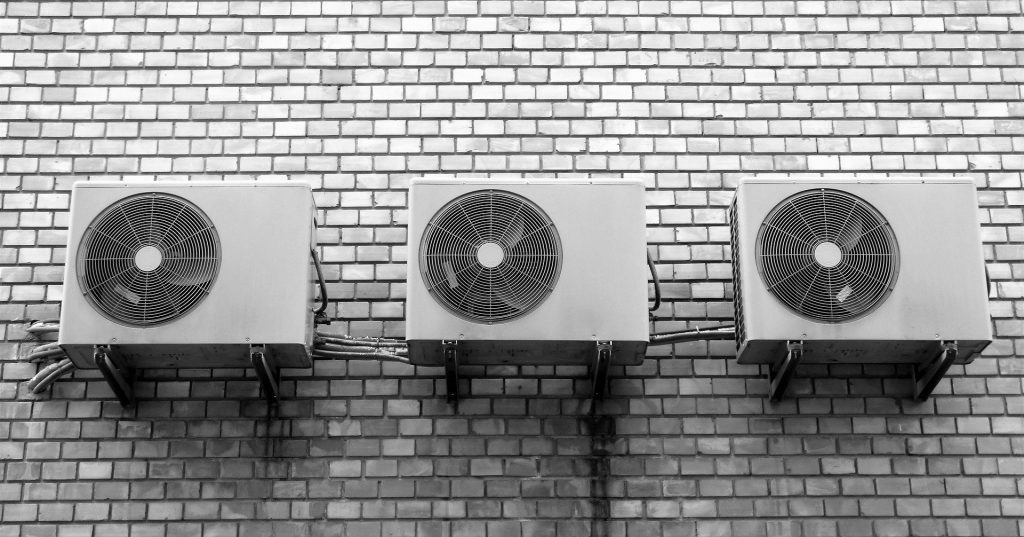
If you don’t have ductwork in your home, a mini-split (also known as “ductless”) air conditioner might serve you well. This type of air conditioner unit features a single exterior compartment housing a condenser that feeds various evaporators throughout the house’s interior.
Benefits Of Mini-Split Air Conditioners
- Flexibility
With a mini-split air conditioner, you can typically install about four evaporators within the house. The small nature of these units allows for easy ‘zoning’ throughout your residence. In other words, you can set each room to a specific temperature based on your needs.
You can also affix each evaporator to a wide array of surfaces, including your wall or ceiling.
- Energy Efficiency
Even the best ductwork wastes some energy. With ductless air conditioners, however, airflow is more direct and doesn’t have as much of an opportunity to leak.
What To Know Before Installing A Ductless Air Conditioner
While ductless air conditioners are easier to install if you don’t have ducts, they can actually end up costing more than a central unit. Home Advisor lists the average cost in the United States as being between $2,000 and $14,500.
This makes them among the most expensive types of air conditioner units. Remember, you’re buying an evaporator for each room or part of your property that needs cooling.
Window Air Conditioners
This is among the most popular types of air conditioners for homes.
Benefits Of Window Air Conditioners
- Affordability
A single window air conditioner can cost between $150 and $1,000. That’s well below what you’d pay for the different types of air conditioners we’ve discussed thus far.
- Energy Efficiency
A window air conditioner’s small size means you’ll use far less electricity to power it than you would for a larger central unit. You can also use them for ‘supplemental cooling,’ which follows the rationale of only cooling whatever room you’re currently occupying. For example, you might only cool your bedroom at night rather than having a central unit treat it continuously throughout the day.
- Easy To Clean
Cleaning a window air conditioner is relatively simple thanks to the small form factor. You can easily remove the unit to get a better angle while brushing and scrubbing.
What To Know Before Installing A Window Air Conditioner
It should come as no surprise that a window air conditioner may not provide the necessary cooling power if you have a large residence. As you scale up and add more window units, you’ll eventually reach a point where it’d be more practical and economical to invest in one of the other types of air conditioners. Check out our guide to windows air conditioner insulation if you’re interested in this type of ACs.
Portable Air Conditioners
A portable air conditioner is exactly what it sounds like. While the different types of air conditioners we’ve mentioned so far all involve some level of installation, a portable unit is freestanding. It can resemble a paper shredder and has a small duct that you can lead out of a window.
Benefits Of Portable Air Conditioners
- Hassle-Free
Even if your landlord prohibits any type of installed air conditioner (including window units), you can likely get away with a portable one. It requires absolutely no permanent changes to the property. You can check out our guide on “How to vent a portable air conditioner without a window” if you’re interested in portable ACs
- Affordability
You can easily find portable air conditioners well below $1,000. In fact, there are good options for less than $500!
- Good For RVs And Other Temporary Housing
While you’d ideally have something more permanent for your full-time residence, a portable air conditioner is perfect for mobile homes, RVs, and vacation properties. The ability to engage in spot cooling (only treating a specific area of your residence) makes this a breeze.
What To Know Before Buying A Portable Air Conditioner
Portable air conditioners offer an even more limited range than a window unit. You may not even be able to cool an entire room if it’s particularly large. They can also be quite noisy.
Truth be told, portable air conditioners aren’t really a permanent solution for your cooling needs. They’re better-suited for temporary applications like what we discussed earlier.
Heat Pumps
Check out this post for a detailed breakdown of the differences between heat pumps and air conditioners. To summarize, a heat pump functions like an air conditioner but can also run in reverse, heating your home as well.
Some experts also refer to heat pumps as ‘geothermal’ units. This is actually a specific type of heat pump that draws warm air from the ground.
Benefits Of Heat Pumps
- Suitability For Moderate Climates
If you live in a very moderate climate (aka not Arizona), a heat pump may provide sufficient warming and cooling. These units don’t cater to the extremes, which you probably don’t need in climates like Seattle. That’s really the only benefit of choosing a heat pump over an air conditioner.
What To Know Before Installing A Heat Pump
Heat pumps can be costlier to purchase and maintain than an air conditioner. If you’re purchasing one of these units for their heating capabilities, keep in mind that they become very inefficient below about 40 degrees. You can learn more about the lowest temperature for air conditioners in our article
A heat pump’s lifespan will also be shorter than that of an air conditioner since it runs year-round.
How To Choose The Right Type Of Air Conditioner
Now that you know about the different types of air conditioners on the market, let’s look at what you need to consider when choosing one.
Consider Your Budget
You should consider not only the cost of the air conditioner itself but also what it will cost to run it monthly, including maintenance. For example, while a window air conditioner will be much cheaper than a split duct system, the monthly costs may negate that if you need to run it aggressively 24/7.
Your Home’s Size
Experts generally recommend 20 BTUs of cooling power per square foot that needs cooling. If you’re looking to cool a 1,000-square foot home, you’re going to need something bigger than a single window or portable unit.
The Air Conditioner’s Features
Quality air conditioners (like the ones from Trane that we offer) offer a great selection of features such as the following.
- Variable-Speed Motors
A variable-speed motor offers increased efficiency by altering its performance based on your demand.
- Sound Dampening
Some air conditioners boast dedicated sound dampening technology that you’ll appreciate if maintaining a quiet environment is important to you.
- Dual Stage Cooling
If you live in an area where temperatures during summer can alternate between sweltering and moderate, a dual-stage compressor setup (one unit being ‘high’ and the other being ‘low’) will perform more efficiently.
- Fan Delay Switch
Air conditioners with a fan delay switch make better use of cooled air by ensuring it gets circulated before the unit completes a cycle.
You can save yourself a lot of money by figuring out which of these features you need and which you don’t.
Different Types Of Air Conditioners: Conclusion
By now, you should have a pretty solid understanding of your options when it comes to choosing an air conditioner. To recap, the most common choices are:
- central air conditioners
- mini-split/ductless air conditioners
- window air conditioners
- portable air conditioners
- heat pumps
The criteria outlined above has hopefully given you a solid understanding of which unit is right for you. If you still have questions and live in the Phoenix area, give American Home Water and Air a call. As Phoenix’s preferred HVAC experts for more than 30 years, we’ll be happy to lend a hand!



